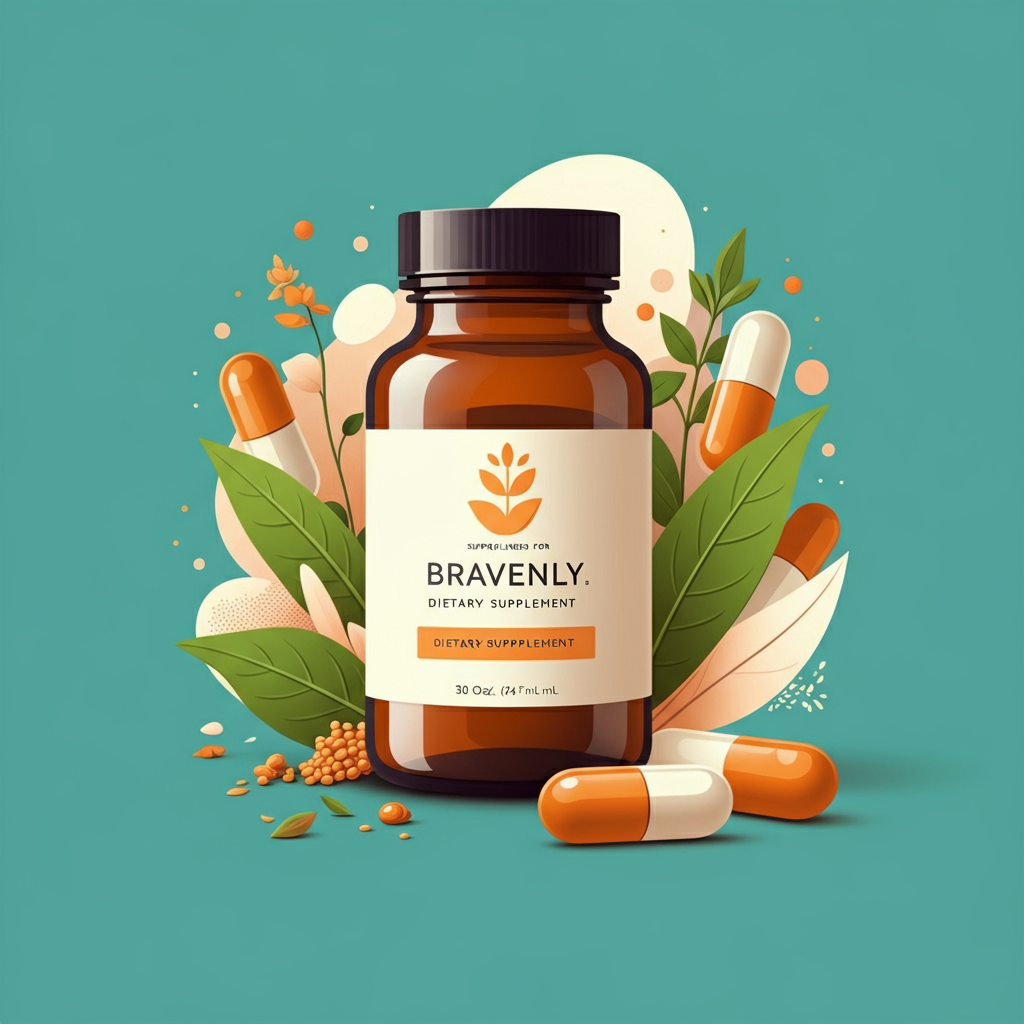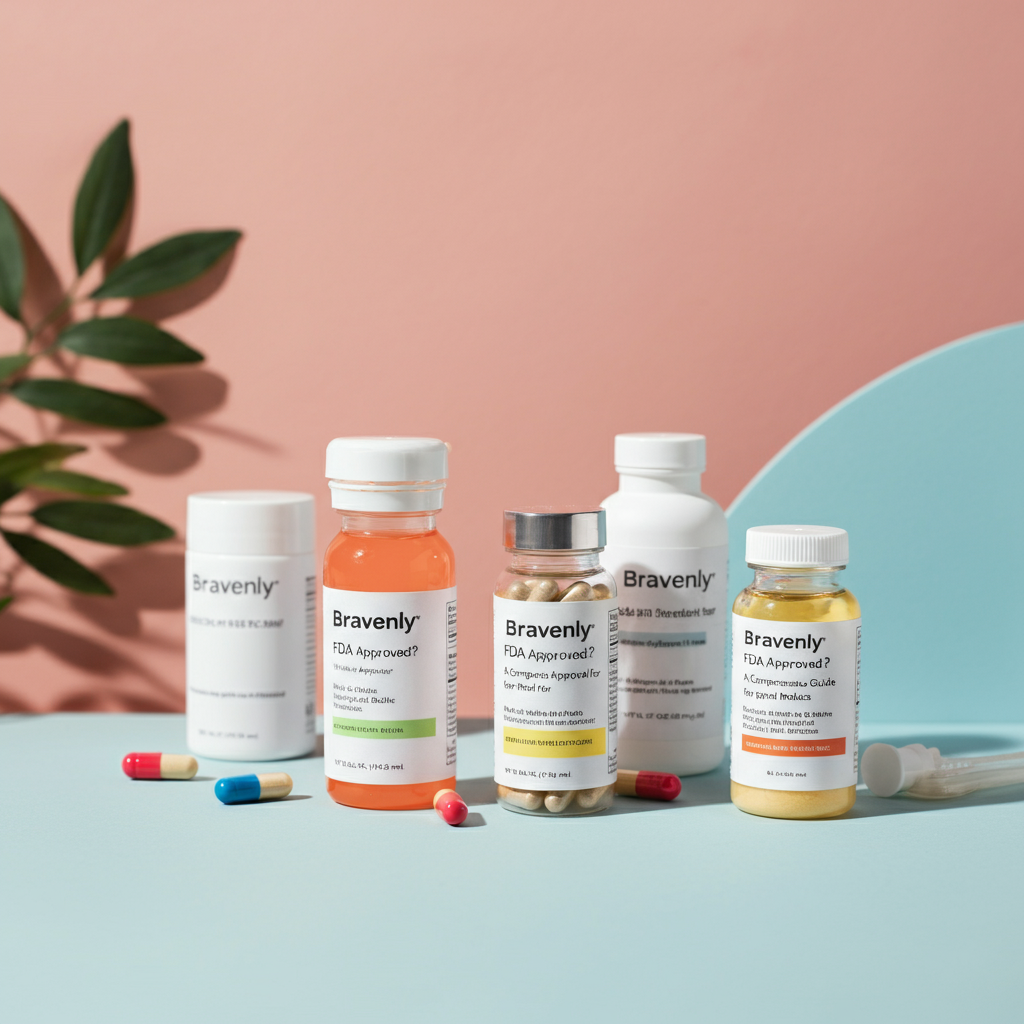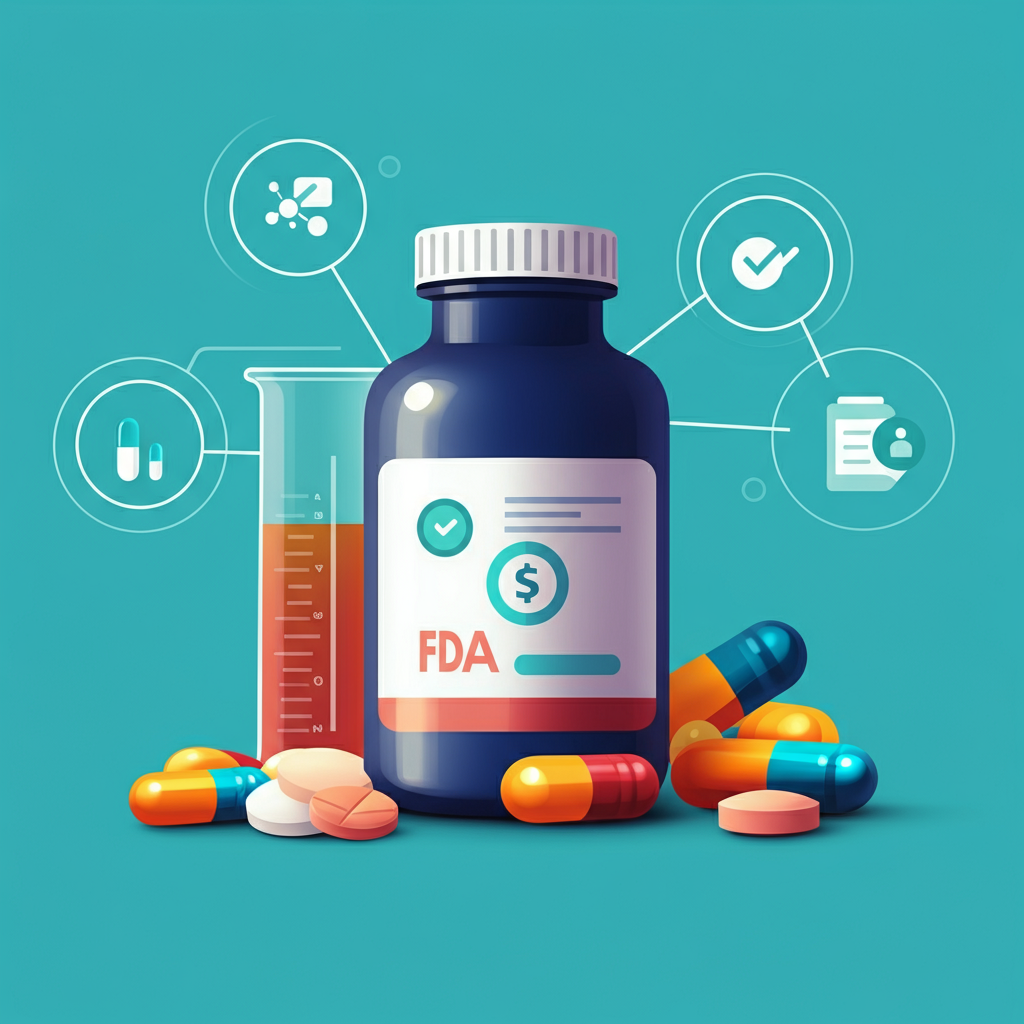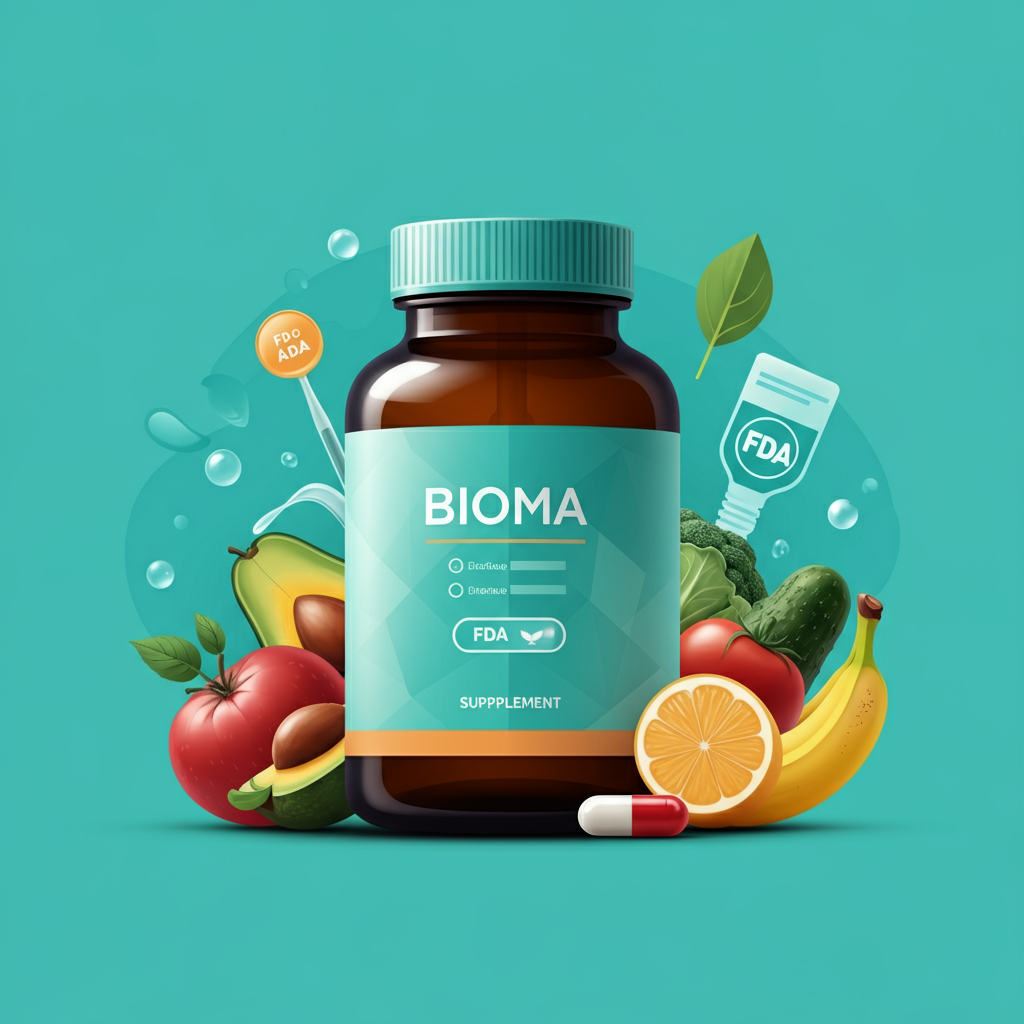Are you unsure if Bravenly is FDA-approved? This is a critical question when it comes to your health and safety.
Don’t risk your well-being on wellness products without the right information.
Our guide breaks it all down for you—fast. Read on to get the answers you need now!
Key Takeaways:
- Is Bravenly FDA Approved: Bravenly products are not FDA approved because dietary supplements and wellness products don’t require FDA approval like pharmaceuticals. However, they must follow FDA regulations for labeling and safety.
- What Does FDA Approval Mean for Wellness Products: FDA approval ensures a product is tested for safety and effectiveness, but this applies only to prescription drugs, vaccines, and some medical devices. Supplements are regulated separately under the Dietary Supplement Health and Education Act (DSHEA).
- Are Bravenly Products Safe to Use: Bravenly products meet industry safety standards and are made in GMP-compliant facilities. While not FDA-approved, the company focuses on quality and transparency to earn consumer trust.
Understanding FDA Approval for Dietary Supplements

Are Dietary Supplements Like Bravenly FDA Approved?
If you’re wondering if dietary supplements, including Bravenly, are FDA-approved, here’s the key thing to know: the FDA does not approve dietary supplements before they hit the market.
This surprises many people, as FDA approval is often associated with safety. However, dietary supplements like Bravenly are regulated differently than drugs or medical devices.
How the FDA Regulates Dietary Supplements
While dietary supplements don’t require pre-approval from the FDA, that doesn’t mean they’re entirely unregulated. Here’s how the FDA oversees them:
Safety Monitoring
Dietary supplements must be safe for public consumption. Manufacturers are legally responsible for ensuring their products won’t cause harm when used as directed.
Proper Labeling
All dietary supplements must follow labeling laws. For example, product labels should list:
- Ingredients
- Serving sizes
- Nutritional information
Misleading claims, like “cures cancer,” are prohibited under FDA guidelines.
Good Manufacturing Practices (GMPs)
Facilities that produce supplements must adhere to specific standards known as Good Manufacturing Practices (GMPs).
Examples of Regulated and Non-Regulated Products
- Dietary Supplements like Bravenly or Hormify are monitored for safety after they are sold but not officially approved by the FDA.
- Prescription Drugs, on the other hand, undergo rigorous FDA testing before approval, ensuring their safety and efficacy before they are used.
You might see some supplements labeled “FDA-compliant.” However, this only means the product follows FDA regulations—not that it received FDA approval.
Is Bravenly FDA Approved?
Bravenly is not FDA-approved. The reason for this is simple—dietary supplements like Bravenly do not require FDA approval before they reach the market.
Instead, they must comply with FDA regulations to ensure safety and transparency in marketing.

Key Points About Bravenly and FDA Compliance
FDA Regulations for Dietary Supplements
- Supplements are regulated differently than prescription drugs.
- Companies must follow FDA rules regarding labeling and ingredient safety.
Compliance Over Approval
- Bravenly complies with FDA guidelines, such as listing ingredients clearly.
- An “FDA-compliant” label means the product follows rules but isn’t FDA-approved.
Ingredients Found in Bravenly
- Bravenly’s formulas often feature natural ingredients like turmeric and black pepper, known for aiding digestion.
- Other elements include garcinia cambogia and apple cider vinegar, associated with weight management.
How FDA Monitors Supplements Like Bravenly
The FDA monitors the dietary supplement marketplace after products are sold. If safety concerns arise, the FDA can investigate and take necessary actions to protect consumers. Transparency is essential in making informed choices.
Is Hormify FDA Approved?
No, Hormify is not FDA-approved. This isn’t unusual, as dietary supplements are not FDA-approved before they are sold. The FDA only reviews drugs and treatments before they are released, not supplements.
However, the FDA does regulate dietary supplements to ensure safety and compliance after they are on the market. This difference is essential to understand when evaluating Hormify or any other wellness product.
Understanding Hormify’s Claims and Ingredients
Hormify is marketed as a wellness supplement aimed at promoting hormonal balance and supporting overall health. Here’s a closer look at the key ingredients commonly highlighted in its formula:
Maca Root:
Known to support energy, mood, and hormonal health.
Ashwagandha:
Often used for stress relief and boosting overall vitality.
Chasteberry:
Linked to menstrual and hormonal regulation.
Vitamin D:
Essential for immune and bone health.
Key Differences Between FDA Approval and Compliance
To clarify, FDA approval means that a product has been tested thoroughly and proven safe and effective for its intended use. This is typically only required for drugs and medical devices. Supplements like Hormify, however, must meet FDA compliance, which involves:
- Ensuring accurate labeling and marketing.
- Avoiding the inclusion of banned substances.
- Adhering to good manufacturing practices (GMP).
Understanding this allows consumers to better evaluate supplements independently.
Making an Informed Decision
If you’re considering Hormify, here are tips to ensure you make a safe choice:
Check the manufacturer:
Confirm they follow FDA’s GMP guidelines. Reputable brands often include this information.
Read third-party reviews:
Look for unbiased customer experiences on trusted platforms.
Consult your doctor:
Especially for hormonal health, always get personalized advice.
By knowing how the FDA monitors supplements and what compliance entails, you can feel more confident in your health choices.
Is Almased FDA Approved?
Understanding FDA Approval and Almased
Almased is a popular dietary supplement often used for weight management. A common question is whether it’s FDA-approved. The answer is simple—no, Almased is not FDA-approved. However, like other dietary supplements in the U.S., it must comply with FDA regulations.
The FDA monitors supplements for safety but doesn’t authorize or “approve” every product unless it’s a medication or medical device. Dietary supplements are regulated under a separate category.

What Does This Mean for Almased?
Although Almased is not “FDA-approved,” it follows strict manufacturing guidelines, including:
Good Manufacturing Practices (GMP):
Almased claims to comply with FDA’s GMP to ensure safety.
GMP regulates cleanliness, quality testing, and consistency in production.
Accurate Labeling:
The label lists key ingredients, nutritional information, and usage instructions.
Check the packaging to ensure everything aligns, and watch for any red flags.
Third-Party Testing:
Almased works with independent labs to verify the purity and potency of its ingredients. This promotes transparency and builds consumer trust.
The Ingredients in Almased
Almased highlights three main ingredients backed by science:
- Soy Protein: High-quality protein that supports muscle building and fat loss.
- Yogurt Powder: A source of probiotics to aid digestion and gut health.
- Honey: A natural sweetener offering energy and added taste.
Each ingredient is well-researched and contributes to the product’s popularity. For example, studies show that soy protein is effective in promoting satiety, which may help reduce calorie intake.
How to Evaluate Almased’s Claims
When considering Almased’s claims for weight loss or energy improvement, these steps can help:
1. Verify Research Studies:
Search for peer-reviewed articles on Almased’s formula.
2. Check for Authentic Reviews:
Read user testimonials on third-party platforms like TrustPilot or other health-focused forums.
3. Consult a Dietitian or Nutritionist:
Professionals can provide tailored advice if you wish to incorporate Almased into your wellness plan.
Understanding FDA regulations can help you make informed decisions. Almased isn’t FDA-approved as a drug, but it aligns with safety standards for dietary supplements.
Is Bioma FDA Approved?
Bioma is marketed as a gut health supplement designed to support digestion and overall wellness. However, it is essential to be clear that Bioma is not FDA-approved.
This is not unusual as the FDA does not approve dietary supplements in the same way it regulates medications. Instead, supplements must adhere to safety and manufacturing standards set by the FDA, which helps ensure consumer protection.

What Are the Key Ingredients in Bioma?
Bioma’s formulation typically includes ingredients like probiotics, prebiotics, and digestive enzymes. These elements are known to aid gut health in specific ways:
Probiotics
- Live microorganisms (like Lactobacillus and Bifidobacteria) that balance your gut bacteria.
- May help improve digestion and boost immunity.
Prebiotics
- Non-digestible fibers that feed beneficial gut bacteria.
- Promote the growth of healthier microbiomes.
Digestive Enzymes
- Facilitate the breakdown of proteins, fats, and carbohydrates.
- Support more effective nutrient absorption.
Why Is FDA Approval Irrelevant for Supplements Like Bioma?
The FDA categorizes dietary supplements separately from prescription drugs. Here’s how the process works:
- Dietary Supplements are required to be safe for consumption. Manufacturers follow FDA regulations to prevent the presence of harmful contaminants and ensure the accuracy of labels.
- Drugs, on the other hand, must undergo extensive clinical trials and FDA reviews for approval.
Since Bioma is a dietary supplement, its marketing claims are regulated but do not require pre-approval.
Is Bioma Safe for You?
While Bioma contains widely recognized ingredients that may improve gut health, it’s always best to consult a healthcare provider before starting any new supplement. Consider the following:
- If you have food sensitivities or allergies, verify the product has no triggering components.
- Pregnant or nursing individuals should consult a healthcare professional before use.
- Individuals on medication should check for potential interactions with Bioma ingredients.
Although Bioma is not FDA-approved, this doesn’t reflect negatively on its potential benefits. Like with any supplement, prioritize safety by researching ingredients and verifying the credibility of the brand.
Evaluating the Claims of Dietary Supplements
Common Marketing Claims of Bravenly, Hormify, Almased, and Bioma
When evaluating dietary supplements like Bravenly, Hormify, Almased, and Bioma, you’ll often come across bold marketing claims. These often include promises of rapid weight loss, improved gut health, or increased energy. While these sound appealing, it’s critical to examine the truth behind these claims.
1. The Promise of Rapid Weight Loss
- Example claim: Almased guarantees rapid weight loss within weeks.
- What to check: Does the company explain how weight loss occurs? For example, Almased emphasises its high-protein content, which may help promote satiety.
- Why it’s concerning: Fast results often rely on unsustainable practices, like extreme calorie restriction.
2. Improved Gut Health
- Example claim: Bioma claims to rebalance gut bacteria with its probiotic blend.
- What to check: Are the probiotics included backed by reputable studies, such as Lactobacillus strains?
- Why it’s concerning: Gut health supplements may lack standardised dosing, resulting in inconsistent results.
3. Boosted Energy Levels
- Example claim: Bravenly promotes “all-day energy” through natural ingredients like B vitamins.
- What to look for: Are the dosages listed, such as B12 or caffeine doses?
- Why it’s concerning: Some energy supplements rely on stimulants, which could cause jitters or crashes.
4. Anti-Inflammatory Benefits
- Example claim: Hormify suggests its supplements reduce inflammation and improve recovery.
- What to check: Do the ingredients include scientifically-backed anti-inflammatories like turmeric or omega-3?
- Why it’s concerning: Claims of reducing all inflammation can oversimplify a complex biological process.
Why Scientific Evidence Matters
Products in today’s wellness market sometimes rely heavily on testimonials or influencer marketing. While reviews may sound convincing, they don’t replace legitimate studies. Scientific evidence involves controlled testing to confirm safety and effectiveness.
For instance, a 2022 probiotic study noted specific strains that aid gut health. However, this doesn’t mean every probiotic on the shelf will work. Brands must disclose their studies to ensure transparency and trust.
Key Takeaways for Analyzing Claims
Here’s a simple checklist next time you’re evaluating dietary supplements:
- Check the ingredient list. Are they supported by clinical research?
- Search for third-party testing. Does the product have NSF or USP certification?
- Beware of “quick fix” promises. Results happen gradually, not overnight.
- Avoid proprietary blends. Brands often hide ingredient dosages within these.
Pros and Cons of Using These Products
Convenience in daily life. Supplements like multivitamins or protein powders fit into busy schedules.
Example: Protein shakes can replace a meal when you’re in a rush.
Specific nutrient boosts. Targeted supplements support deficiencies, like Vitamin D for bone health.
Support for overall wellness. Natural ingredients such as omega-3 fatty acids or probiotics.
Example: Omega-3s contribute to heart and brain health, often found in fish oil capsules.
Performance and recovery aid. Athletes use supplements like creatine for exercise recovery and endurance.
Positive user testimonials. Many users share success stories about improved energy and sleep patterns.
Cons of Using Dietary Supplements
No FDA approval on effectiveness. The FDA doesn’t evaluate effects on treating specific health issues.
Example: A supplement that “boosts immunity” may not deliver on its promise.
Risk of harmful substances. Poor-quality supplements may contain contaminants or undisclosed ingredients.
Tip: Always look for products that have undergone certified third-party testing.
Side effects are possible. High doses of certain vitamins, like Vitamin A, can cause toxicity.
Example: Over-supplementing Vitamin A can harm the liver over time.
Unverified claims mislead consumers. Marketing slogans like “miracle cure” or “instant results” exaggerate expectations.
Varied individual results. What works for one person may not work for another due to unique health needs.
How to Make an Informed Decision
Making informed decisions about dietary supplements involves gathering the right information and understanding what to look for. Here’s a simple guide that combines expert advice with practical steps to help you choose wisely:
Check FDA Compliance
Always look for supplements that comply with FDA regulations. This ensures the product has been made under strict safety and quality guidelines. For example, choose supplements with labels stating “GMP Certified,” as this guarantees good manufacturing practices.
Research Ingredient Evidence
Research the scientific studies that support each ingredient. Reliable resources, such as Weshapesoul, provide verified research on how specific vitamins or minerals work. For instance, omega-3 fish oils are widely studied for heart health, with consistent findings supporting their benefits.
Consult a Healthcare Professional
Speak to a doctor, nutritionist, or pharmacist before starting any supplement. For example, if you’re considering a vitamin D supplement, they can advise on dosage based on your specific needs. This reduces the risk of interactions with medications or existing conditions.
Evaluate Claims with Critical Thinking
Marketing terms like “quick fix” or “clinically proven” are often misleading. Instead, focus on products that list clear dosages and provide transparency about their sources. For instance, a genuine claim would state “contains 500 mg of calcium per serving” instead of vague wording.
What to Watch for in Testimonials
Testimonials and online product reviews can offer insights, but they shouldn’t be your only guide. Here’s how to assess them wisely:
Look for Verified Purchases
- Verified reviews on trusted platforms, such as Amazon, can be more reliable. A review stating, “I felt less muscle fatigue after three weeks of using magnesium,” is more helpful than generic praise.
Be Wary of Overly Positive Reviews
- Excessive praise without mentioning side effects or personal context can signal a fake review. Honest testimonials often include balanced perspectives, presenting both the pros and cons of a product.
Quick Checklist for Smart Supplement Choices
- Read ingredient labels thoroughly—avoid products with excessive fillers or “proprietary blends.”
- Prefer brands that share third-party test results, like NSF Certified.
- Only buy from trusted retailers. A reputable source reduces the risk of counterfeit items.
By following these steps, you’ll make confident choices that align with your health goals. Careful research and a critical mindset are key to finding dietary supplements that truly work.
Alternatives to These Products
If you’re seeking alternatives to dietary supplements with similar benefits, consider these well-researched and effective options. These alternatives often have stronger scientific backing and focus on FDA-approved claims for safety and efficacy:
1. Natural Food Sources
Instead of relying on synthetic supplements, aim to include nutrient-dense whole foods in your diet. These options provide vitamins and minerals your body needs, with better bioavailability.
- Leafy Greens like spinach and kale are rich in iron, magnesium, and Vitamin K.
- Fatty Fish such as salmon and mackerel provide Omega-3 fatty acids and Vitamin D.
- Citrus Fruits including oranges and grapefruits deliver Vitamin C and antioxidants.
A balanced diet can reduce your dependence on pills and powders.
2. Supplement Alternatives with Scientific Evidence
If supplements are necessary, consider options with verified effectiveness and transparent manufacturing practices.
- Creatine Monohydrate – Backed by research, it’s ideal for muscle energy and improving performance during workouts.
- Fish Oil – Look for products labeled IFOS-certified, guaranteeing purity and potency.
- Probiotics – Opt for strains like Lactobacillus or Bifidobacterium for enhanced gut health and digestive support.
Opt for brands that share third-party validation and studies on effectiveness, not just marketing claims.
3. FDA-approved Options for Specific Needs
For certain nutrients, FDA-approved alternatives may be available. These options often come with strict safety standards.
- Prescription Vitamin D – Commonly recommended to treat deficiencies in individuals with limited sun exposure.
- Folate (L-methylfolate) – For those with genetic conditions hindering folic acid absorption, this is better absorbed by the body.
- Calcium Supplements – Check for USP Verified seals, ensuring quality and consistency in formulation.
Consult your healthcare provider before trying these alternatives, especially if you’re addressing specific health concerns.
Key Tips for Choosing Alternatives
- Read Labels Thoroughly. Always verify active ingredients and the presence of third-party testing certifications.
- Prioritize Safety. Stick to products with clinical studies and regulatory approvals for peace of mind.
- Start Small. Introduce one alternative at a time to monitor its effects on your health.
Remember, your health is a long-term investment. Whether you choose natural foods or supplements with a stronger scientific foundation, focus on safety, efficacy, and supporting your individual wellness goals.
FAQs
Is Bravenly FDA approved?
No, Bravenly products are not FDA approved. The FDA does not approve dietary supplements but oversees their safety and labeling under the Dietary Supplement Health and Education Act (DSHEA).
How does the FDA regulate wellness products like Bravenly?
The FDA monitors wellness products by ensuring manufacturers follow good manufacturing practices (GMPs) and that their products are labeled accurately, without unapproved health claims.
Why isn’t FDA approval required for supplements like Bravenly?
Unlike prescription medications, dietary supplements do not require pre-market approval from the FDA. Instead, manufacturers are responsible for ensuring their safety and compliance with regulations.
Are Bravenly products safe to use without FDA approval?
The safety of Bravenly products depends on the ingredients, manufacturing practices, and third-party testing. Consumers are encouraged to research and verify the brand’s commitment to quality and safety.
How can I verify the quality of Bravenly products without FDA approval?
Look for third-party testing certifications, transparent ingredient lists, and reviews of their manufacturing practices. This information helps assess the credibility and safety of the products.


1 thought on “Is Bravenly FDA Approved? A Comprehensive Guide to FDA Approval for Popular Wellness Products”